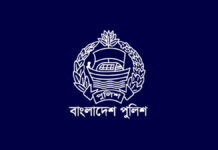By Kamran Reza Chowdhury on Mar 16, 2021 Benar News
A special court formed eight years ago to handle cybercrime in Bangladesh has completed work on a fraction of thousands of cases in its docket, and obtained only 30 convictions, court records show.
Due to this backlog, and the difficulty of getting bail under vaguely worded laws aimed at regulating online speech, hundreds of accused people languish in jail for months, lawyers and investigators say.
“This is true that the conviction rate at the Cyber Tribunal is low. Many lawyers try to point to flaws of the investigation and prosecution, but this is not the case,” Nazrul Islam Shamim, the tribunal’s public prosecutor, told BenarNews.
“In most of the cases, we see that witnesses do not appear at the court for deposition,” he said.
Launched in 2013, with the entire country under its jurisdiction, Bangladesh’s Cyber Tribunal has completed work on just 128 of the 3,324 cases that landed in its docket between 2013 and March 4, 2021, court records show.
Of the 128 cases adjudicated by the tribunal, only 30 resulted in convictions, meaning the prosecution could not prove the allegations in more than 75 percent of those cases.
A leading officer in the Cyber Police Unit of the Criminal Investigation Department suggested a lack of training in evidence-gathering was to blame.
“Cybercrimes are different from other offenses and require special skills and methods,” Mohammad Mahmudul Islam Talukder, an additional superintendent of police, told BenarNews.
For instance, “there are special techniques to retrieve a defamatory Facebook post,” he said. “Unless investigators follow the proper techniques and methods, they cannot prove the allegations, and the accused person would get acquitted.”
Flawed
The Cyber Tribunal is responsible for meting out justice under two laws – the Information and Communication Technology Act (ICT Act) and the Digital Security Act – that critics say are overly broad and used to silence government critics.
“The ICT Act and the Digital Security Act have widely been misused,” said Prokash Biswas, a senior practicing lawyer who has handled cases before the Cyber Tribunal.
“The police and other law enforcers immediately arrest the accused persons even if a lowest-level worker of the ruling party or its front organization files a case at any police station,” he told BenarNews. “As the laws do not grant bail, the accused persons are sent to jail.”
Investigation reports are largely flawed, he added, suggesting that “investigation officers either do not apply their mind, or they lack the capability to do cyber investigations.”
Biswas cited the cases of publishing house owner and editor Shamsuzzoha Manik and two of his associates who were charged in 2016 under the ICT Act with hurting religious sentiments for publishing a book that allegedly contained “anti-Islam” content.
They remained for several months before eventually being granted bail on health grounds. In January 2019, the Cyber Tribunal acquitted all of them, Biswas said.
“This case proved that the investigators did not understand the law regarding offenses that should go to the Cyber Tribunal,” Biswas said.
Prosecutor Shamim agreed.
“The case in no way could be filed under the ICT Act, as the alleged offense did not link with a digital platform or device,” Shamim said.
Death behind bars
Prison directorate officials told BenarNews on Tuesday that 400 people were currently in jail facing charges under the Digital Security Act, while 26 were behind bars pending trial under the ICT Act.
Until recently, those numbers included writer Mushtaq Ahmed and cartoonist Ahmed Kabir Kishore, who were arrested and charged under the Digital Security Act in May 2020 for Facebook posts allegedly criticizing the government’s handling of the coronavirus.
Ahmed’s requests for bail were denied six times, including two days before he died of “natural causes” at the age of 53 after suddenly falling ill in a high security prison in central Bangladesh, officials said.
Days later, cartoonist Kishore was granted bail on health grounds. Kishore told BenarNews that he was tortured after his arrest, an allegation authorities denied.
Following Ahmed’s death, U.N. High Commissioner for Human Rights Michelle Bachelet called for Bangladesh to suspend application of the Digital Security Act.
“Various U.N. Human Rights bodies have long raised concerns about the ill-defined, overly broad provisions of the Digital Security Act that have been used to punish criticism of the government,” Bachelet said.
“All those detained under this Act for exercising their rights to freedom of expression and opinion must be released.”
Cyber laws
Enacted by the Bangladesh Nationalist Party (BNP) government in 2006, the ICT Act contained provisions that penalized content on any electronic platform determined to be fake, obscene, or defamatory, or capable of disrupting law and order or hurting religious sentiments.
In 2009, the Awami League government of Prime Minister Sheikh Hasina strengthened the law, lengthening punishment under its dreaded Section 57 to 14 years in prison.
Renowned photographer Shahidul Alam was arrested under the ICT Act in August 2018 for “giving false information” and “provocative comments” on a government crackdown on students who had protested for weeks demanding reforms after a speeding bus killed two classmates.
After multiple tries, he was eventually granted bail in late November 2018.
In September 2018, with a general election looming, the government enacted the Digital Security Act. It replaced Section 57 of the ICT Act, but free speech advocates said it was even harsher and introduced new curbs on the press.
The law empowers police to make arrests on suspicion and without a warrant, and 14 of its 20 provisions do not allow for bail.
Amid international outcry over Ahmed’s death, Law Minister Anisul Huq told BenarNews that the government had no plans to scrap the Digital Security Act.
“But we are examining the alleged cases of abuse,” he said. “The Digital Security Act is for security of the people – the intention is not to harass anyone.”










